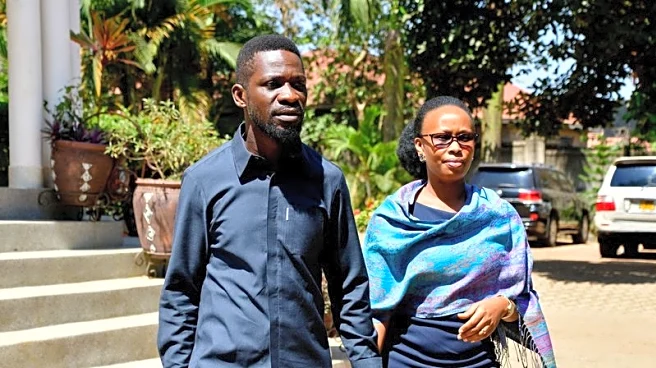Rapid Read • 9 min read
The United Nations Relief and Works Agency (UNRWA) has issued a warning regarding the severe malnutrition crisis affecting children in Gaza City. According to recent reports, malnutrition rates have reached 21.5%, indicating that approximately one in five young children are malnourished. The humanitarian situation in Gaza has been exacerbated by ongoing conflict and blockades, leading to widespread food shortages and a lack of access to essential services. Local health officials have reported that 11 people, including a child, have died of starvation in the past 24 hours, bringing the total number of hunger-related deaths to 251. The UN Office for the Coordination of Humanitarian Affairs (OCHA) noted that nearly 13,000 new admissions for acute malnutrition treatment were recorded in July 2025. UNRWA has called for the lifting of the siege on Gaza and for aid to be allowed in at scale to address the crisis.
AD
The malnutrition crisis in Gaza is a significant humanitarian issue with far-reaching implications. The high rates of malnutrition among children can lead to long-term health problems, affecting their physical and cognitive development. The ongoing conflict and blockades have severely limited access to food and healthcare, exacerbating the crisis. The situation highlights the urgent need for international intervention and support to alleviate the suffering of the civilian population. The crisis also underscores the broader geopolitical tensions in the region, with implications for international relations and peace efforts. The humanitarian impact is profound, affecting millions of people and requiring coordinated efforts from global agencies and governments to provide relief and support.
The international community is likely to face increased pressure to address the humanitarian crisis in Gaza. UN agencies and humanitarian organizations may intensify their calls for the lifting of blockades and increased aid access. Political leaders and governments may need to engage in diplomatic efforts to facilitate the delivery of humanitarian aid and negotiate ceasefires or peace agreements. The situation may also prompt discussions on long-term solutions to address the root causes of the conflict and improve living conditions for the people of Gaza. Continued monitoring and reporting by international media and agencies will be crucial in maintaining awareness and driving action.
The crisis in Gaza raises ethical and legal questions about the responsibilities of the international community in conflict zones. The blockade and restrictions on aid access challenge humanitarian principles and the rights of civilians to receive essential services. The situation also highlights the vulnerability of women and children in conflict zones, who often bear the brunt of the humanitarian impact. Long-term shifts in regional dynamics may occur as a result of increased international attention and intervention, potentially influencing future peace processes and geopolitical strategies.
AD
More Stories You Might Enjoy











